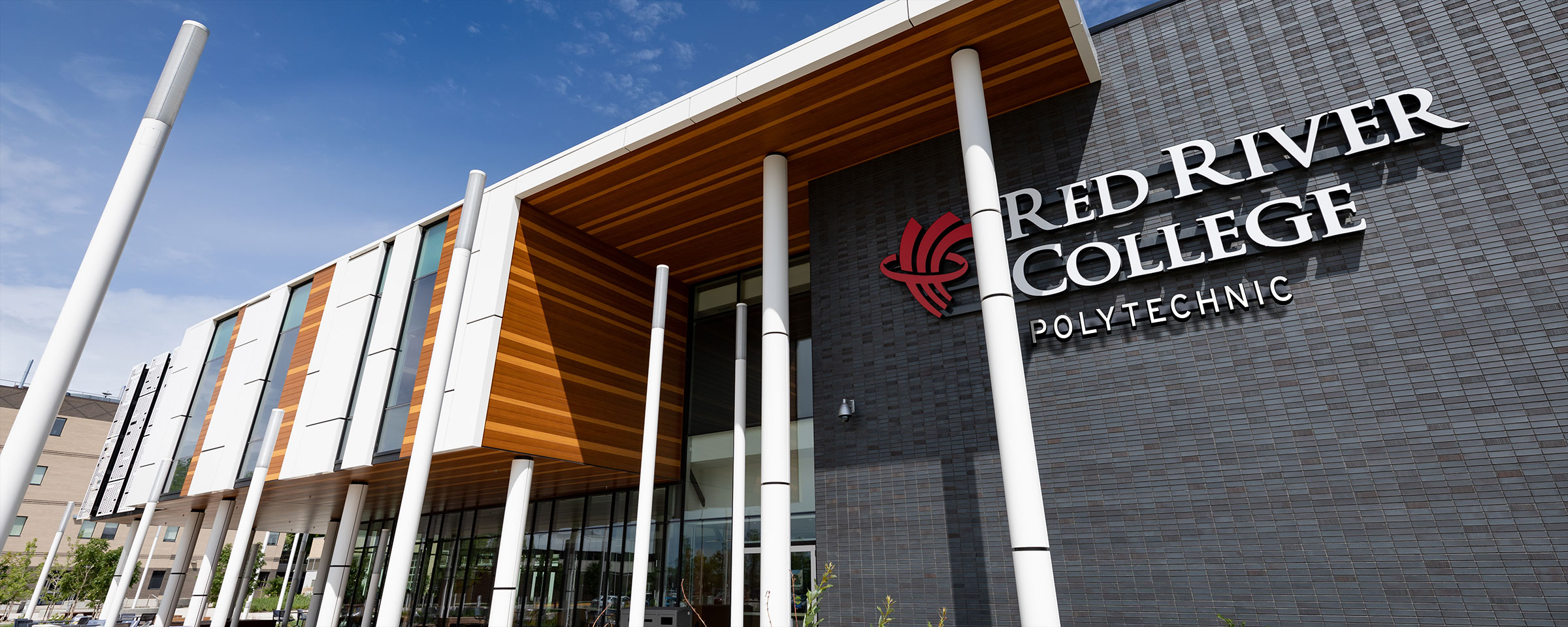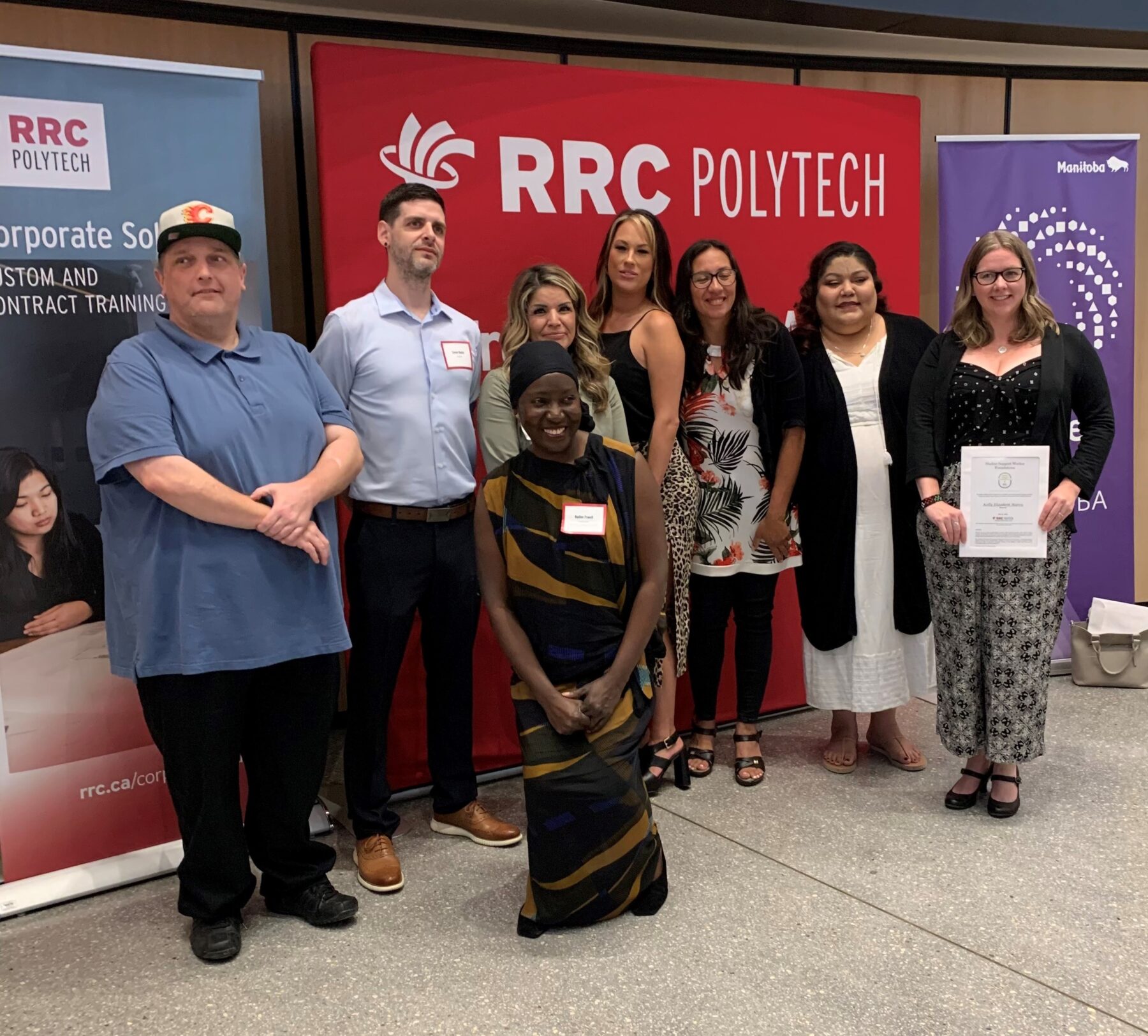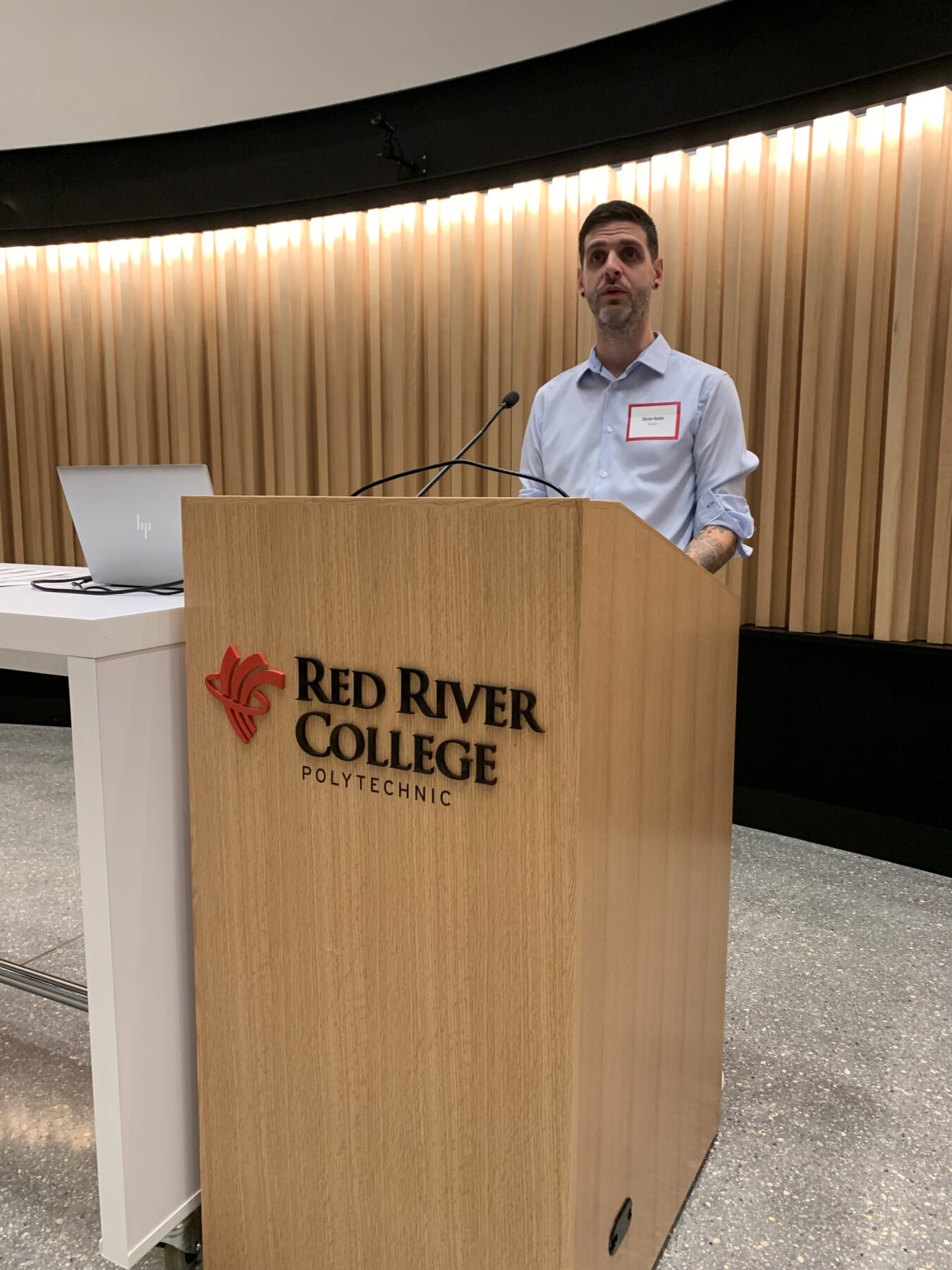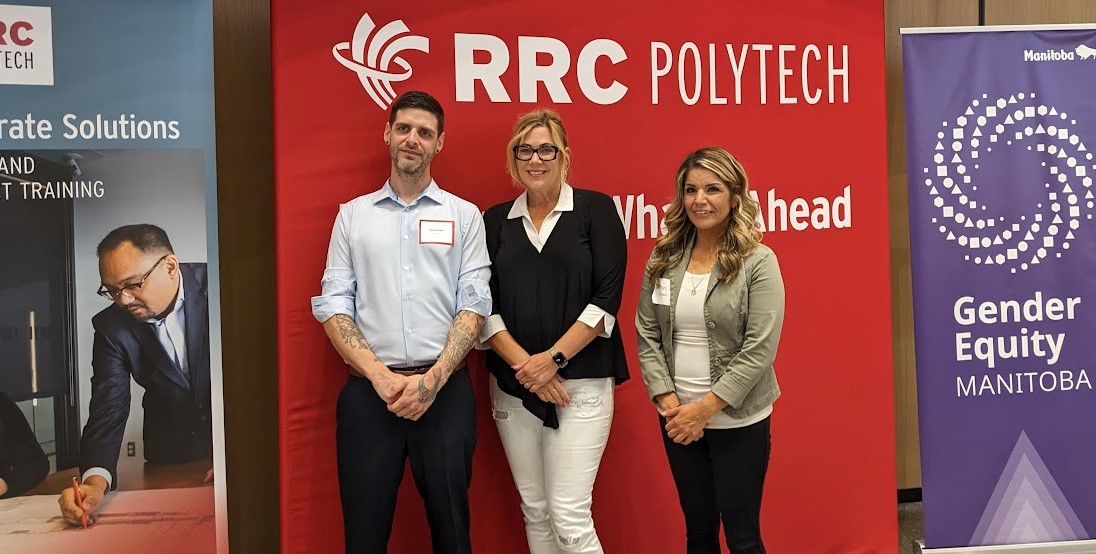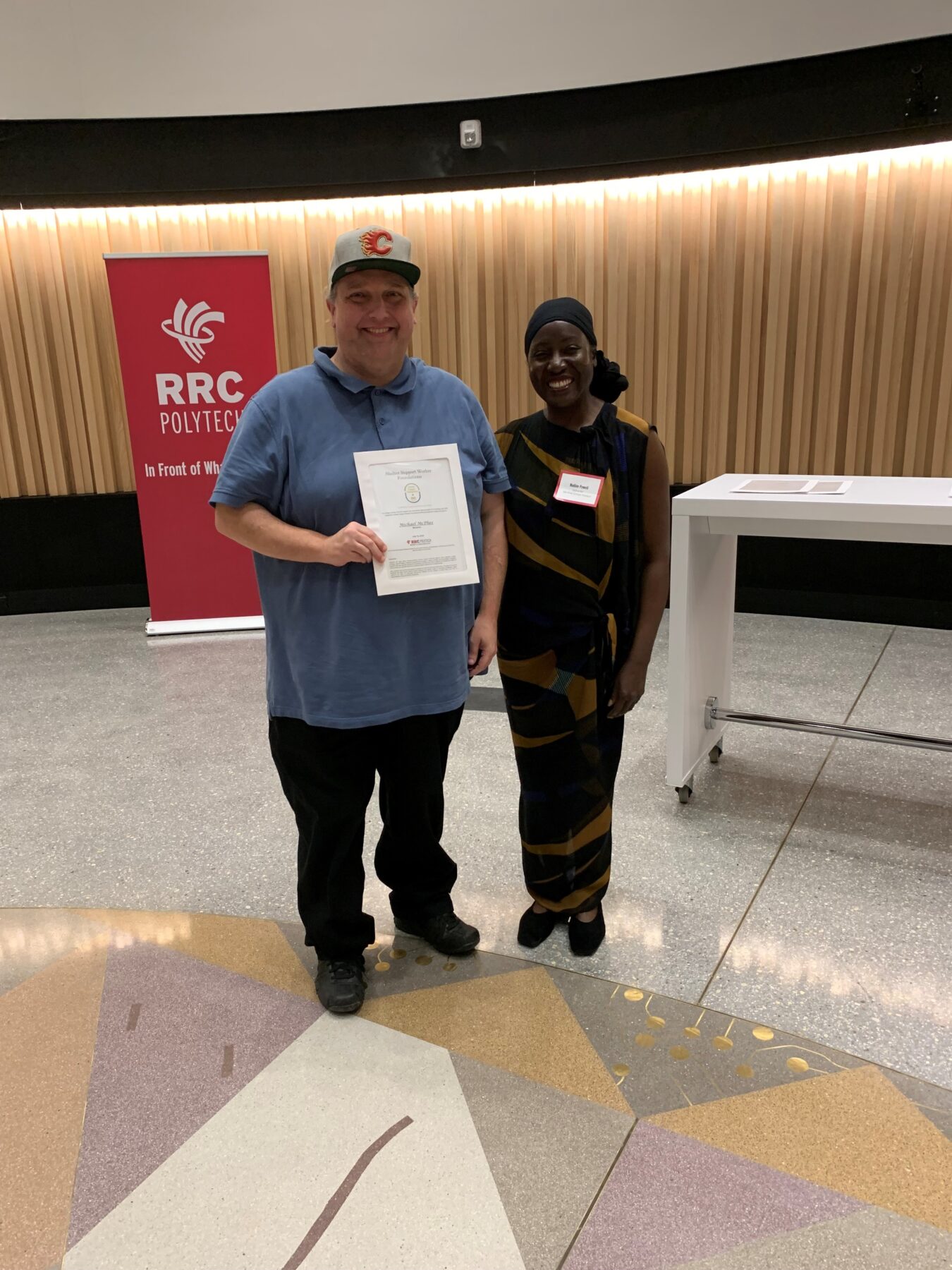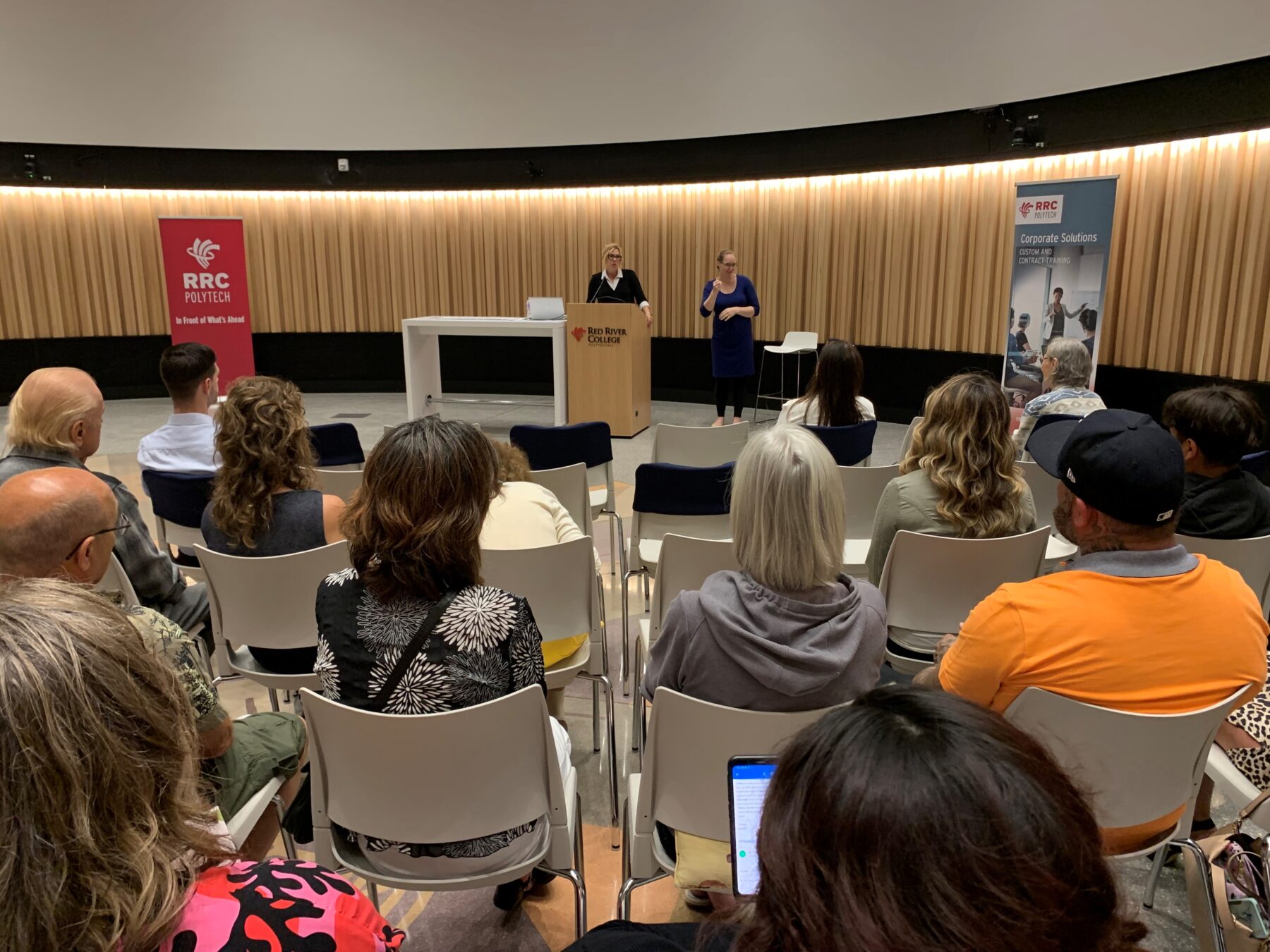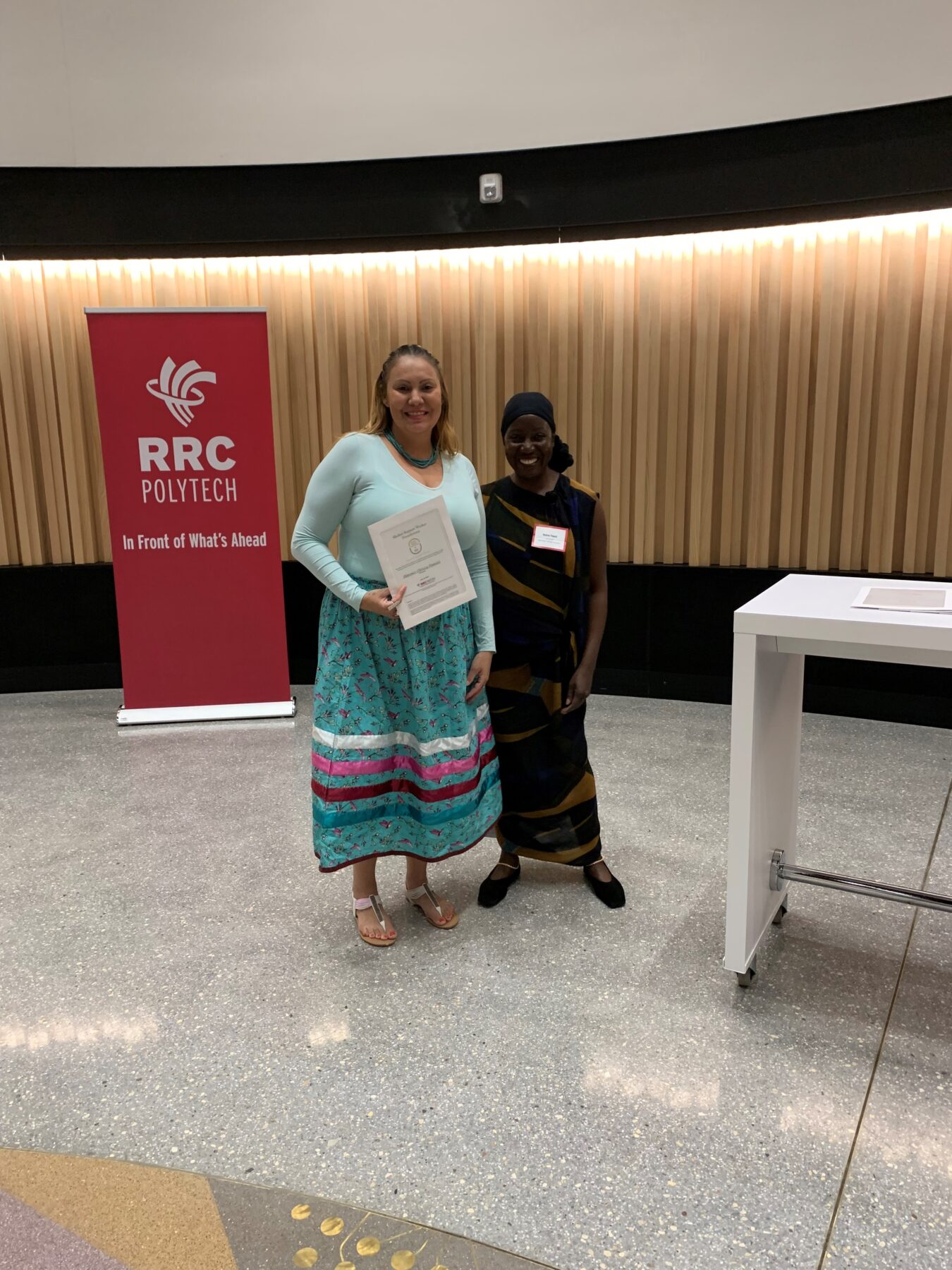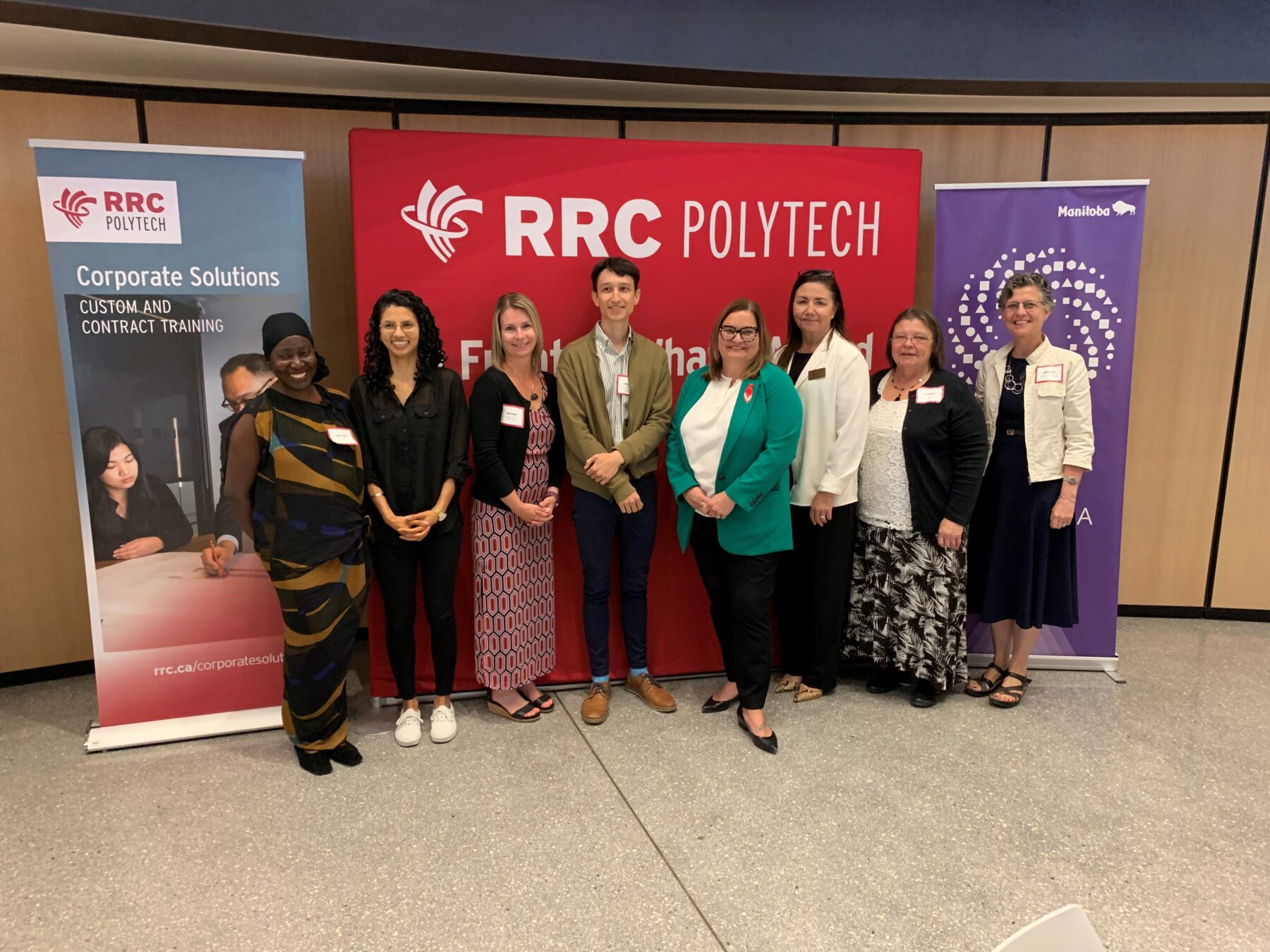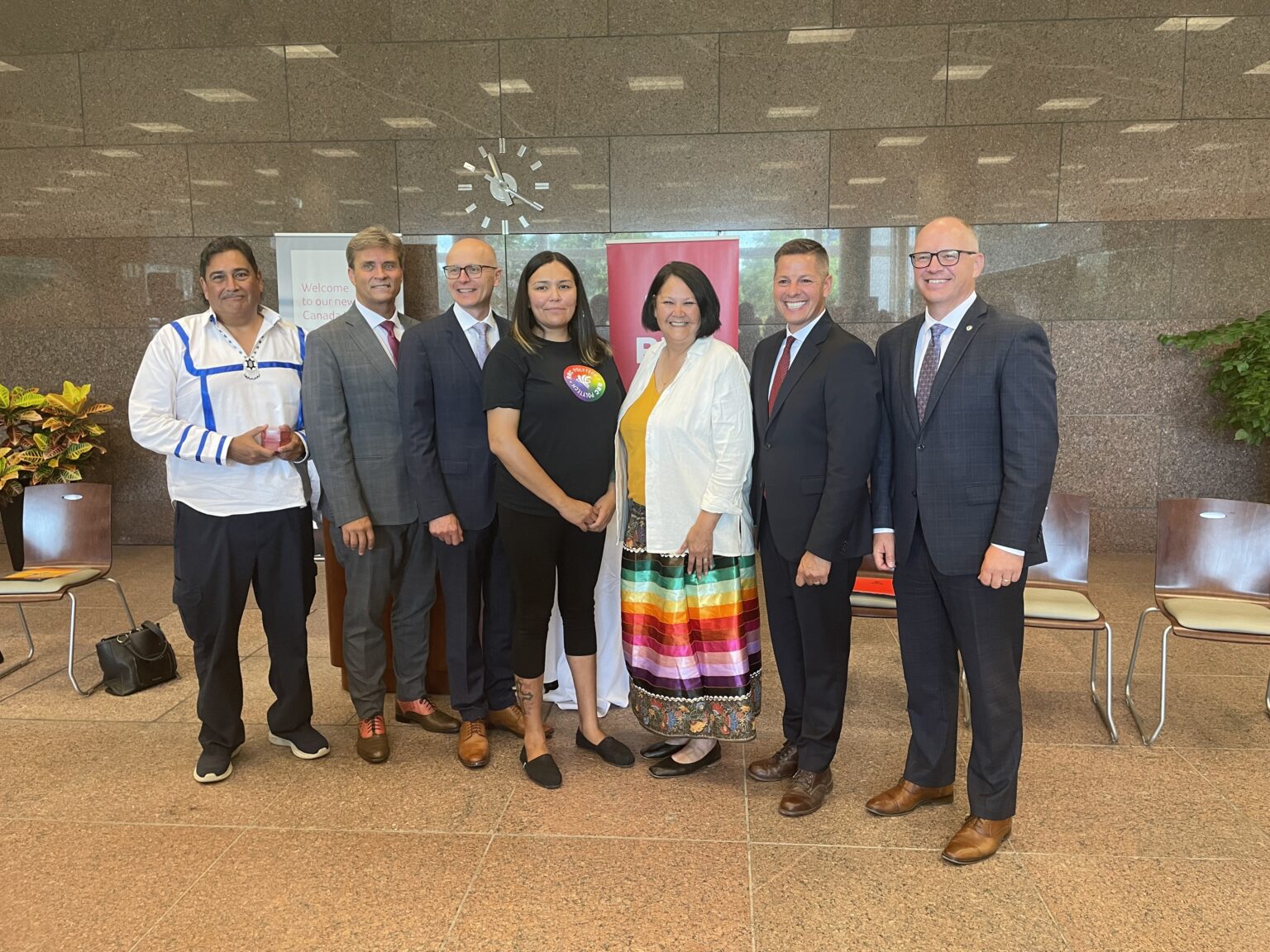RRC Polytech hosts immersive event introducing young women to careers in trades and technologies
Winnipeg, Manitoba, on Treaty No. 1 Territory and the Homeland of the Red River Métis – More than 90 young women from Winnipeg high schools will be on campus at Red River College Polytechnic (RRC Polytech) today to try their hand at different skilled trades and technologies.
This is the first year RRC Polytech is hosting Jill of All Trades, a full-day event developed by Conestoga College Institute of Technology and Advanced Learning as a way to introduce young women and female-identifying students from grades 9 to 12 to the possibilities of careers in the trades.
“RRC Polytech recognizes there is a gap in representation of women, female-identifying and non-binary individuals in the skilled trades industry and part of the solution is encouraging learners from a young age to explore their options and let them know there is a place for them,” says Fred Meier, President and CEO of RRC Polytech. “We’re excited to welcome young women and female-identifying students to our campus today and hope to see them back here to pursue a trade after high school.”
Throughout the day, learners will receive hands-on training in a selection of trades offered at the College, including:
- Construction – Building a bird house
- Transportation – Changing a tire and learning to program EV vehicles
- Electrical and Mechanical Engineering Technology – Building a light detector circuit board with electronic components
- Welding – Creating a product using a welding simulator
- Robotics – Learning how to program a robot
- Civil Engineering Technology – Testing pollution in water and soil, and testing heat and moisture in buildings
- Construction Electrical – Learning how to wire a doorbell
Each of the sessions will be led by College staff who have built strong careers in industry. Not only will the learners receive technical training, they will also have the opportunity to ask questions and learn what a career in each trade entails.
RRC Polytech partnered with Skills Canada Manitoba on the event. The two organizations host a number of events together each year to encourage youth to get creative and hone their skills in trades and technologies, including the Young Women’s Conference, the Skills Manitoba Provincial Competition and the recent Gene Haas Manufacturing Bootcamps.
“The more we expose young people, especially girls, to the opportunities in the skilled trades the more we empower them for a successful future,” says Maria Pacella, Executive Director, Skills Canada Manitoba. “It’s important to provide youth with the chance to try something new and decide if it’s something they like and want to learn more about, and potentially grow that passion into a rewarding career.”
RRC Polytech’s Jill of All Trades event was made possible locally through generous support from Winnipeg Construction Association, Manitoba Women in Construction and Toromont Industries.
For more information about trades and technologies programs at RRC Polytech visit rrc.ca/skilledtrades
